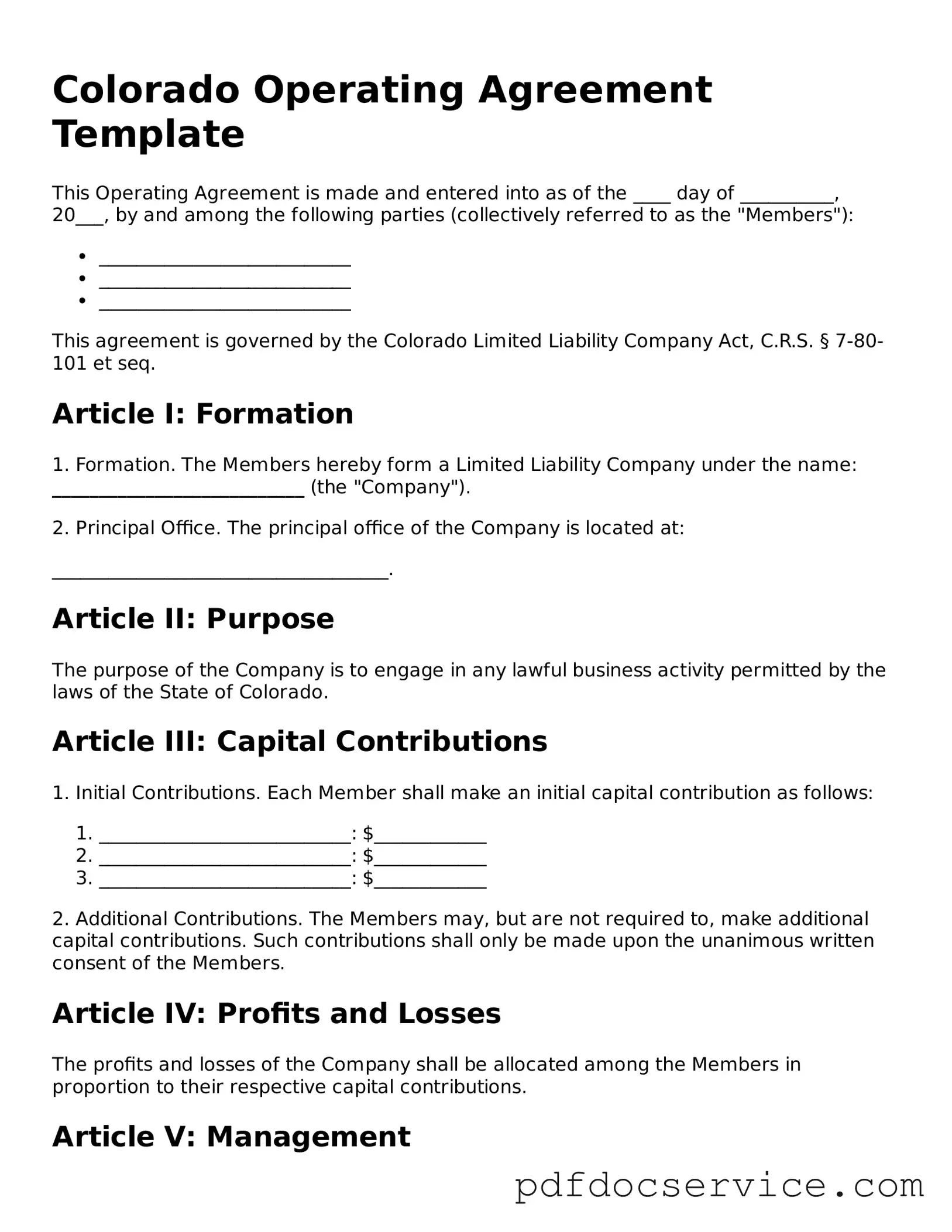Printable Operating Agreement Template for Colorado
The Colorado Operating Agreement form is a legal document that outlines the management structure and operating procedures of a limited liability company (LLC) in Colorado. This agreement serves as a foundational framework, detailing the rights and responsibilities of members, as well as the rules for running the business. Having a well-drafted Operating Agreement is crucial for ensuring clarity and preventing disputes among members.
Open Operating Agreement Editor

Printable Operating Agreement Template for Colorado
Open Operating Agreement Editor

Open Operating Agreement Editor
or
Get Operating Agreement PDF
Finish the form now and be done
Finish Operating Agreement online using simple edit, save, and download steps.